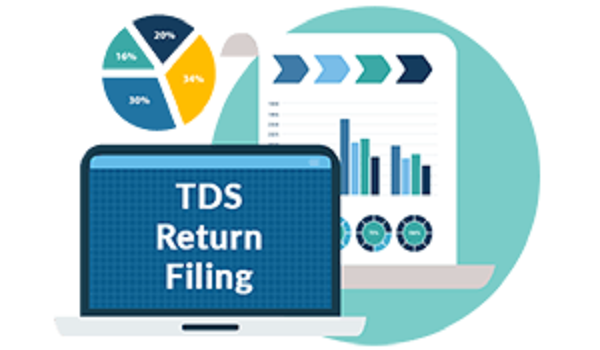Section 194-IA deals with the deduction of tax in case of purchase of property where the amount of consideration exceeds Rs. 50 lakh. The relevant extract of income tax act is as under:
“Any person, being a transferee, responsible for paying (other than the person referred to in section 194LA) to a resident transferor any sum by way of consideration for transfer of any immovable property (other than agricultural land), shall, at the time of credit of such sum to the account of the transferor or at the time of payment of such sum in cash or by issue of a cheque or draft or by any other mode, whichever is earlier, deduct an amount equal to one per cent of such sum or the stamp duty value of such property, whichever is higher, as income-tax thereon.”
How to calculate the liability for deduction of TDS u/s 194IA?
Further, sub section 2 states that no TDS needs to be deducted for purchase of property where the consideration value is below Rs. 50 lakh. Relevant extract of the section is as under:
“(2) No deduction under sub-section (1) shall be made where the consideration for the transfer of an immovable property and the stamp duty value of such property, are both, less than fifty lakh rupees.”
Now, there is a controversy as to whether the consideration amount mentioned in above sub section is in relation to each buyer or is in relation to a property.
One school of thought says that since sub section 2 starts with referring sub section 1, the consideration limit needs to be seen in relation to the person to whom such consideration is paid whereas
Second school of thought says that since such sub section 2 does not talks about such consideration it does not talks about the consideration paid to a person in sub section 1 but total consideration for the property.
Thus, one can choose their own interpretation of sub section 2 and deduct TDS accordingly.
When to deduct TDS on purchase of immovable property?
As per sub section 1 above it can be said that TDS needs to be deducted at the time of credit or payment whichever is earlier i.e. if you are making any advance payment TDS needs to be deducted on each payment.
TDS needs to be deducted and deposited within 30 days form the end of the month in which TDS has been deducted. [As per rule 31A]
Challan for the payment of TDS is challan cum TDS return for TDS deducted u/s 194IA.
If TDS is not deducted within due time then interest at the rate of 1% or 1.5% per month as applicable u/s 201 shall be charged and late fees at Rs. 200 per day can also be charged by income tax officer.
Who should file Form 26QB?
TDS return cum challan should be filed by each buyer who is party to the agreement of purchase.
Who should not file Form 26QB?
Please note that if the seller is a non-resident Form 27Q needs to be filed rather than Form 26QB.
However, if seller is a resident and purchaser is a non-resident Form 26QB can be filed.
Thus, to simplify if seller non-resident Form 27Q, if seller resident then Form 26QB irrespective of residential status of purchaser.
Now that we have discussed the basics of TDS on purchase of property let’s discuss about how to file the TDS return?
Earlier Form 26QB was getting filed on Tin-NSDL website wherein under e-pay tax people used to submit details of buyer and seller and make payment of TDS and file Form 26QB.
Now, since all the banks for making payment of tax have been shifted to e-filing portal, Form 26QB has also been shifted to E-filing portal.
For filing Form 26QB one needs to login to e-filing portal after login under E-file they will find an option e-pay tax. After clicking on e-pay tax one needs to click on new payment and there they will find an option for Form 26QB – TDS on sale of property.
Rest details for filing of Form 26QB are same as earlier form and you can take help of a tax professional to fill the Form.
Hope the above information helps you in making the compliances.
Guidance on above article for Indian Income Tax by:
Naman Maloo (C.A., B.Com)
He is currently working as Partner – Direct Tax with a renowned firm in Jaipur having experience in dealing Assessments before Income Tax authority, Tax Audit, International Taxation, Tax planning for NRI, Business planning and consultation.
E-mail: naman.maloo@jainshrimal.in | LinkedIn: Naman Maloo
You can book phone consultation/ assistance online with expert as mentioned below:
To book ITR filing with experts CLICK ME.
To book phone consultation with experts for any Income tax related matters CLICK ME.
To book consultation for Faceless Assessment with experts CLICK ME.
To book phone consultation with experts for GST related matters CLICK ME.
To book general phone consultation with expert CLICK ME.











![[Live] Updates and Tax changes for Budget 2023 | Tax on cryptocurrency | Income tax and GST udpates in Budget 2023 [Download Bill]](https://www.taxontips.com/wp-content/uploads/2023/02/Budget-2023-120x86.webp)


